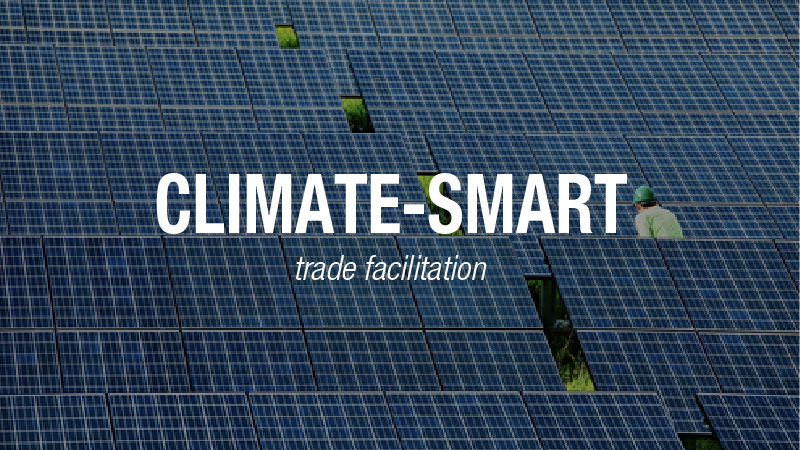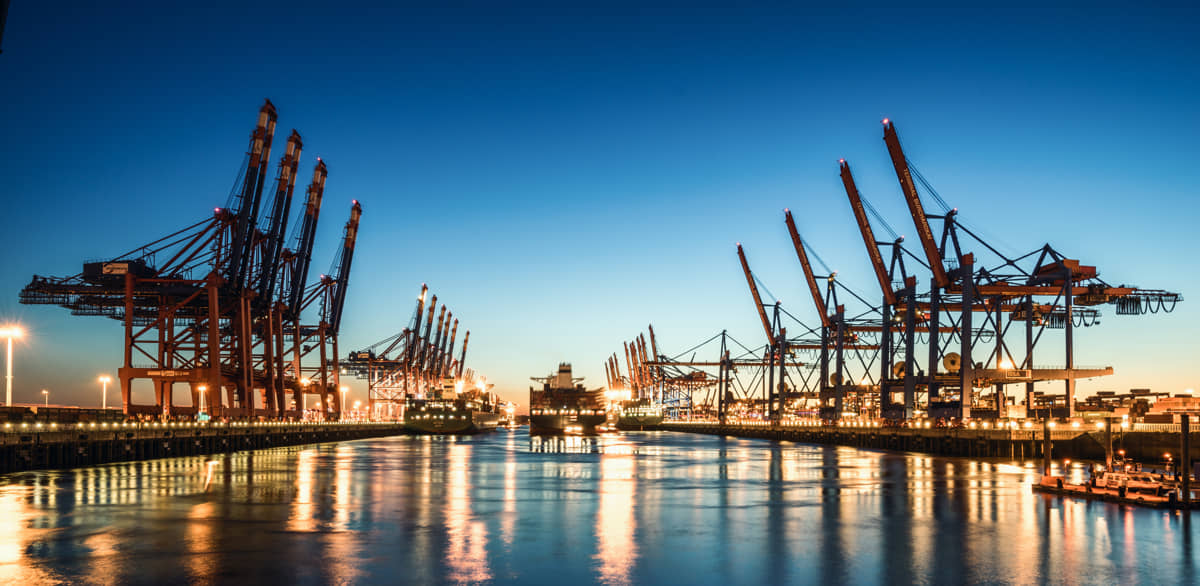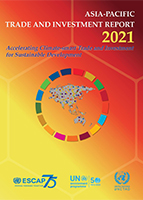
Our mission is to foster sustainable trade practices that strengthen economic and climate resilience in vulnerable countries.
By leveraging digital technologies and enhancing national coordination, we aim to streamline cross-border trade processes while reducing carbon emissions.
Aligned with the Sustainable Development Goals and global climate targets, we are committed to promoting greener, more efficient global supply chains that address the urgent need for sustainability in regions most impacted by climate change.
Join us in advancing climate-smart solutions for a more sustainable future in global trade.
Why Climate Smart Trade Facilitation?
The Urgency of Climate Action. With the world rapidly approaching the critical 1.5°C threshold above pre-industrial levels, the need for sustainable trade has never been more urgent.
Our Climate-Smart Trade Facilitation initiative seeks to address this challenge head-on, helping countries reduce carbon emissions in international trade procedures, and contributing to global climate goals.
Trade facilitation can lead to tangible results by reducing, inter alia, the use of paper and the time spent, and petrol and electric energy consumed while communicating with border agencies to meet administrative requirements.
This can be measured in a reduction of greenhouse gas emissions.
Trade facilitation through new technologies combined with national policies aimed to promote greening global supply chains.
Key Facts:
-
1Trade and transport are among the largest sources of carbon emissions globally.
-
2Streamlining international trade procedures can drastically cut down on the use of paper, fuel, and other critical resources.
-
3Adopting digital technologies is essential to creating cleaner, more sustainable supply chains.
What we do
At UNCTAD, we implement Climate-Smart Trade Facilitation by collaborating with governments, business community, and international partners to foster sustainable trade reforms in view of greening the global supply chains.
Our approach focuses on data collection, identifying the bottlenecks in energy consumption, and integrating these solutions into national development plans.
Our methodology is based on a CO2 emission calculator which compiles the main operations of international trade.
By simplifying cross-border trade processes and embracing digitalization, we not only improve efficiency but also reduce carbon footprints, making trade more sustainable for the long term.
Examples of climate-smart trade facilitation initiatives:
- The implementation of the Vanuatu Electronic Single Window has led to 180,000 kg of CO2 emission reduction equivalent to annual capture of 9,000 trees.
- In Timor Leste, the electronic single window had allowed for a 95% decrease in physical trips and printed paper.
- The documentation and simplification process of trade procedures on the Trade Information Portal of Kenya has allowed for reduction of papers and time spent on fulfilling the administrative requirements.
Out of 54 international trade procedures which have been simplified so far, 54 documents were eliminated and 204 hours saved.
Featured projects
Impact
Our initiative has far-reaching impacts, particularly on reducing carbon emissions related to international trade. By optimizing customs processes and transitioning to digital documentation, we reduce the need for physical documents, thus minimizing resource use and emissions.
Through this project, we are achieving key milestones, including:
- A robust database of trade facilitation and supply chain data, helping countries track and measure their progress.
- A CO2 emissions calculator designed to assess and reduce emissions for cross-border trade procedures.
- Strategic implementation plans, tailored to individual countries, to support the implementation of climate-smart trade reforms.
Featured Publication
Get involved and join our efforts
UN Trade and Development is at the forefront of helping countries implement Climate-Smart trade facilitation solutions. By simplifying trade procedures, enhancing public-private cooperation, and creating digital solutions, we are working to make a significant impact on global CO2 emissions.
Together, we can create a future where trade and sustainability go hand-in-hand.




